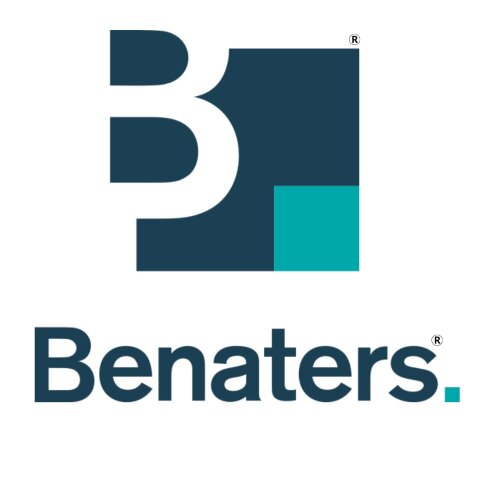Best Tax Increment Financing Lawyers in Johannesburg
Share your needs with us, get contacted by law firms.
Free. Takes 2 min.
List of the best lawyers in Johannesburg, South Africa
About Tax Increment Financing Law in Johannesburg, South Africa
Tax Increment Financing (TIF) is a financial tool used by municipalities across the globe to stimulate economic development, particularly in underdeveloped or economically stagnant areas. In Johannesburg, South Africa, TIF allows the city government to channel future tax revenues from a defined area to support public and private investment within that area. This can involve funding infrastructure projects, improving public facilities, or encouraging development initiatives that support job creation and economic growth. TIF is an innovative approach to revitalizing urban areas, ensuring that developments are both financially viable and socially valuable.
Why You May Need a Lawyer
While TIF offers significant opportunities, it also involves various legal complexities that might require professional legal assistance. Situations where you may need a lawyer include:
- Navigating the legal requirements to set up a TIF district, including understanding zoning laws, property assessments, and tax implications.
- Negotiating development agreements between public and private entities.
- Ensuring compliance with local and national laws and regulations associated with TIF projects.
- Addressing disputes or legal challenges related to TIF implementation or execution.
- Assisting in the interpretation and enforcement of contracts and agreements.
Local Laws Overview
Tax Increment Financing in Johannesburg operates under both local government ordinances and broader national financial regulations. Key aspects of these laws include:
- Municipal authority to designate TIF districts and approve financing plans.
- Criteria for funding allocation, which often prioritize projects that offer clear public benefits.
- Tax laws affecting the assessment and collection of increment taxes within designated areas.
- Regulations ensuring transparency and public accountability in the selection and execution of TIF-funded projects.
- Requirements for periodic review and reporting to assess the impact and efficiency of TIF initiatives.
Frequently Asked Questions
What exactly is Tax Increment Financing?
Tax Increment Financing is a method used to fund public or private projects by capturing the future increase in property tax revenue generated from a designated area.
How does a TIF district get established in Johannesburg?
A TIF district is established through a local government process that involves identifying a potential area, drafting a development plan, and securing necessary approvals from city councils and relevant authorities.
Who benefits from TIF?
Benefits extend to developers, property owners, businesses, and the local community through improved infrastructure, enhanced public services, and economic growth.
Can anyone initiate a TIF project?
Initiation usually involves government entities or developers with substantial interest in urban development. Public-private partnerships are a common approach to launching TIF projects.
Are there any risks associated with TIF?
Yes, potential risks include insufficient return on investment, increased public debt, and potential displacement of existing communities if not managed carefully.
How are the funds from TIF used?
Funds are used for public infrastructure improvements, enhancing public facilities, and sometimes, supporting private developments that align with community goals.
What happens if a TIF project fails?
If a project fails, it can lead to financial shortfalls affecting municipal budgets and potentially not achieving desired urban development outcomes.
Is TIF a common practice in South Africa?
While not as widespread as in some other countries, TIF is utilized in urban centers like Johannesburg where economic revitalization is needed.
How are TIF projects monitored?
Projects are monitored through regular financial reporting, community oversight committees, and audits ensuring adherence to established goals and budgets.
Where can I find more information about TIF in Johannesburg?
Local municipalities and the South African National Treasury often provide guidelines and reports on TIF policies and outcomes.
Additional Resources
For further information, the following resources might be helpful:
- Johannesburg City Council: Offers public records and meeting minutes where TIF-related decisions are discussed.
- South African National Treasury: Provides guidelines on municipal finance and investment strategies.
- Urban Development Frameworks: Documents that propose strategies for urban revitalization, often including TIF plans.
Next Steps
If you are considering legal assistance with a Tax Increment Financing matter in Johannesburg, here are some steps to follow:
- Research and Contact Legal Professionals: Look for lawyers or law firms with expertise in municipal law, urban development, and finance.
- Consultation: Schedule consultations to discuss your specific TIF needs and how a lawyer can assist you.
- Gather Documents: Collect relevant documentation, including development plans, financial projections, and any governmental approvals, to aid your legal counsel.
- Engagement: Once you select a legal representative, engage them formally to start working on your TIF-related legal requirements.
Lawzana helps you find the best lawyers and law firms in Johannesburg through a curated and pre-screened list of qualified legal professionals. Our platform offers rankings and detailed profiles of attorneys and law firms, allowing you to compare based on practice areas, including Tax Increment Financing, experience, and client feedback.
Each profile includes a description of the firm's areas of practice, client reviews, team members and partners, year of establishment, spoken languages, office locations, contact information, social media presence, and any published articles or resources. Most firms on our platform speak English and are experienced in both local and international legal matters.
Get a quote from top-rated law firms in Johannesburg, South Africa — quickly, securely, and without unnecessary hassle.
Disclaimer:
The information provided on this page is for general informational purposes only and does not constitute legal advice. While we strive to ensure the accuracy and relevance of the content, legal information may change over time, and interpretations of the law can vary. You should always consult with a qualified legal professional for advice specific to your situation.
We disclaim all liability for actions taken or not taken based on the content of this page. If you believe any information is incorrect or outdated, please contact us, and we will review and update it where appropriate.
















